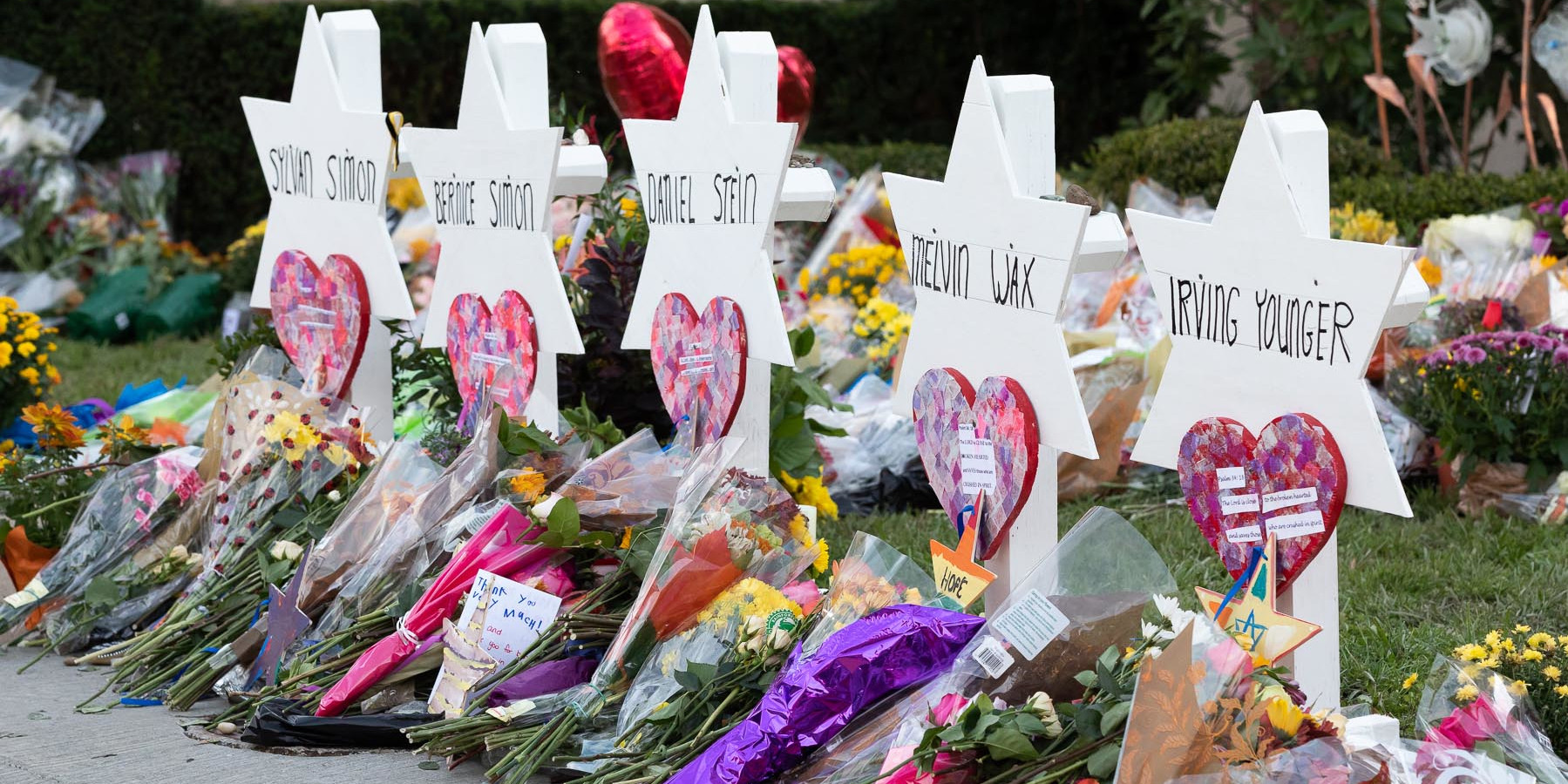We are in the midst of a sharp increase in homegrown violent extremism (HVE), owing specifically to those embracing right-wing extremist ideologies. The data are clear: the right-wing terrorist threat that has been festering and growing for years—since the terms of former President Barack Obama and even before—is now at a critical level of participation and extremist action. The result is terrorist attacks, and in recent months, those attacks have been directed at faith communities and houses of worship.
Consider examples:
- On October 27, 2018, the shooting at the Pittsburgh Tree of Life Synagogue was the deadliest attack against Jews in American history. Eleven people were murdered.
- On April 27, 2019, exactly six months later, a shooting at the Chabad of Poway synagogue in California left one dead and three injured.
- Also in April, a Louisiana man was arrested and charged with hate crimes after setting fire to three churches with predominantly African American congregations.
- These U.S. extremist attacks come alongside the horrific mass shootings at two mosques in Christchurch, New Zealand, which left 51 people dead.
There are troves of data showing the right-wing, white supremacist terrorist threat is dramatically outpacing the threat from Muslim Identity extremism, such as that espoused by al Qaeda and ISIS. Like ISIS et al., however, right-wing extremists are using online capabilities to form hateful communities, spread extremist messages, and glorify and champion acts of murder and terrorism. Indeed, the attackers on Tree of Life and Chabad of Poway, as well as the Christchurch attacker, all used online channels to spread their messages and promote their actions.
We know that there are three core components in radicalization to violence: a sense of alienation, a legitimizing ideology, and an enabling community. In the 21st century, communities are not only found in real-world locations, and looking to the activity in online communities frequently used by right-wing extremists, there is reason for grave concern.
A 2018 study from the Network Contagion Research Institute found a significant increase in anti-Semitic and racist posts on social media sites between July 2016 and January 2018. Specifically, in the “Politically Incorrect” group on 4chan, the use of the words “Jew” and a derogatory term for people of Jewish faith doubled; a racial slur directed at African Americans grew more than 30 percent. The report also found the frequency of anti-Semitic content significantly increased after major political events, such as the 2016 presidential election and the 2017 “Unite the Right” rally in Charlottesville. This shows how events in the real world can fuel hate in virtual communities that in turn spills back out in the form of terrorism.
Facing Threats, Taking Action
In May, two congressional hearings addressed the growing HVE threat. On May 8, the House Homeland Security Committee held a hearing on confronting the rise of domestic terrorism. Then on May 15, the House Oversight and Government Reform Subcommittee on Civil Rights and Civil Liberties also held a hearing on implications from the HVE threat. The hearings revealed that attackers are embracing hateful online communities and that the nation’s policies and resources remain in denial of the manifest threat. Federal action and clear, unambiguous commitment to condemning and defeating right-wing extremism is essential and indispensable. At the same time, however, we know that an enabling environment is the sole factor that can be addressed to mitigate and dissuade radicalization to violence—and at SCI, we are taking action.
- In partnership with the Anti-Defamation League, SCI offered “Understanding Bias & Hate Crime On Campus,” which provided hate crime training for USC students, faculty, staff, and first responders. We also continue to respond to requests for presentations addressing concerns regarding protecting houses of worship.
- We kicked off our partnership with The Hero In You Foundation and the Los Angeles Police Department to provide safety and emergency preparedness education and actionable tools to children 3-9 years old.
- In partnership with Game Changer, the premier law enforcement/community relations program in the country, we are convening moderated focus groups between members of law enforcement and members of the public to improve relations and decrease violence among ethnically diverse juveniles, young adults, adults, members of law enforcement and elected officials.
- On November 6, 2019, SCI will host the USC Homegrown Violent Extremism Global Digital Summit. The event will feature panel discussions with former extremists, policy practitioners and survivors of extremist violence attacks. The format leverages the success of our 2018 Safe Schools Summit, allowing thousands of people from around the world to watch and engage the program and at no cost.
To meet America’s terrorist threat, there are critical, past-due changes needed in federal and state policies, programs, and funding. But there are also opportunities for all us to take part in addressing extremism. Join us as we continue to combat hate, encourage resilient communities, and move all of us toward a new understanding of public safety and homeland security.




